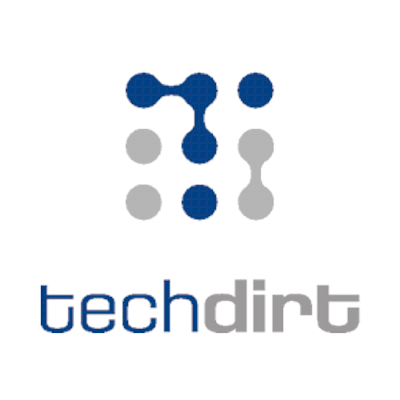from the fustercluck dept
Hoo-boy, if you pay even mild attention to the video game industry, you’re already going to be aware of the complete shitshow famed game-engine Unity has on its hands right now. By way of throat-clearing, you need to know how Unity got to where it is to understand what’s happening now. The game engine has enjoyed a successful rise in adoption and popularity in no small part because developers, regardless of size, could produce games based on subscription tiers without having to worry about or project just how successful those games would be. In fact, CEO John Riccitiello made some explicit comments as to the business model and why it was so great for smaller developers.
“There’s no royalties, no fucking around,” Unity CEO John Riccitiello memorably told GamesIndustry.biz when rolling out the free Personal tier in 2015. “We’re not nickel-and-diming people, and we’re not charging them a royalty. When we say it’s free, it’s free.”
This was a major differentiator from other game engines, such as Unreal, where subscriptions weren’t a thing at all, but royalties for games were. It was a major draw for Unity, particularly for, but not only for, smaller developers.
Well, that all changed recently. Unity unveiled its new business model and pricing plans and they are designed to milk money from developers, particularly smaller developers using the lower-tiered subscriptions for the engine, not for every copy of the game sold, like a royalty, but for every unique install.
The newly introduced Unity Runtime Fee–which will go into effect on January 1, 2024–will impose different per-install costs based on the company’s different subscription tiers. Those on the Unity Personal tier (which includes free basic Editor access) will be charged $0.20 per install after an individual game reaches $200,000 in annual revenue and 200,000 lifetime installs.
Users of Unity’s Pro and Enterprise tiers (which charge a separate annual subscription for access to a more full-featured Unity Editor) will pay slightly smaller per-install fees starting at $0.125 to $0.15 after a game reaches $1 million in annual revenue and 1 million total installs. The per-install fees for the paid subscription tiers are also subject to “volume discounts” for heavily installed games, going down as low as $0.01 per install for games that are installed 1 million times per month.
All of the sudden, once the threshholds are met, developers are essentially being punished every time a game is installed by being hit with a non-royalty royalty. Oh, and the pricing changes are retroactive, meaning that if you built and sold a game based on the old pricing model, it gets ported into this new model. It’s actually worse than a royalty, as several game developers have explained.
Beyond anger over retroactive changes, many developers also see the potential for player abuse and mischief in a world of “per-install” fees. Groups of gamers who are already liable to “review bomb” games they don’t like could theoretically start “install bombing” Unity games by repeatedly installing and deleting a game, costing the developer money with each new install. Pirated copies could also be included in the fee calculations, imposing a direct cost for illicit downloads that don’t provide any revenue for the developer.
Unity initially told Axios’ Stephen Totilo that the “per-install” fee applies even if a single user deleted and re-installed a game or installed it on two devices. A few hours later, though, Totilo reported that Unity had “regrouped” and decided to only charge developers for a user’s initial installation of a game on a single device (but an initial installation on a secondary device–such as a Steam Deck–would still count as a second install).
Sheffield points out that a success story like Vampire Survivors–which leveraged a 99-cent price to help achieve viral liftoff–would be much harder to pull off under the new Unity structure.
“Imagine releasing a game for 99 cents under the personal plan, where Steam takes 30% off the top for their platform fee, and then Unity takes 20 cents per install, and now you’re making a maximum of 46 cents on the dollar,” Sheffield wrote. “As a developer who starts a game under the personal plan, because you’re not sure how well it’ll do, you’re punished, astoundingly so, for being a breakout success.”
When it comes to all of this being retroactive to already released games, Unity may have a problem on its hands. While the company is claiming that it’s Terms of Service allow it to change the fee structure however it wants at any time, the company said the exact opposite, publicly, a few years ago.
That change in developer expectations is especially galling in light of a 2019 Unity blog post in which the company seemingly pledged that any changes to its Terms of Service would not apply retroactively to games made on older versions of the engine. “When you obtain a version of Unity and don’t upgrade your project, we think you should be able to stick to that version of the TOS,” the company wrote at the time.
Developers are pissed and it’s not difficult to understand why that would be. This is throwing every developer that built their games on Unity into chaos, wondering what fees they will be hit with, when they will be hit with them, with many of them either praying there aren’t more sales of their games or actively telling the public not to by them.
Some developers are going so far as to urge players not to install their games in light of the new fee. “Everyone buy Venba. But don’t install it,” developer Abhi wrote of his delightful cooking-based narrative game. “Come to my house and you can play it on my pc. I’ll serve Idli or Dosa for lunch.”
And angry developers and a completely broken system of trust isn’t the only trouble Unity is having as a result of all of this. It hasn’t escaped the industry’s attention that several Unity executives had the foresight to sell off a not-insignificant amount of the company’s stock just before this new pricing plan was announced.
According to Guru Focus, Unity CEO John Riccitiello, one of the highest-paid bosses in gaming, sold 2,000 Unity shares on September 6, a week prior to its September 12 announcement. Guru Focus notes that this follows a trend, reporting that Riccitiello has sold a total of 50,610 shares this year, and purchased none.
Riccitiello isn’t the only executive at Unity to sell a bunch of stock the week before the company’s Runtime Fee announcement. According to Unity’s market activity on the Nasdaq, several other Unity board members sold significant numbers of shares leading up to its “plan pricing and packaging updates.” Chief among them being Tomer Bar-Zeev, Unity’s president of growth, who sold 37,500 shares on September 1 for roughly $1,406,250, and board director Shlomo Dovrat, who sold 68,454 shares on August 30 for around $2,576,608.
Is any of this illegal? I have no idea, but I sure as shit wouldn’t be surprised to read in the coming days that the SEC would begin looking into all of this trade activity to see if any of it was undertaken in coordination with the business model change. And even if it’s not illegal, it sure is an awful look for the company. The feedback on the new pricing plan has been almost universally and angrily derided by the company’s customers and just before that predictably happened a bunch of execs sold off their stock. Stock that, as it happens, had been up nearly 40% year to date, only to suffer a 7% dip this past week. How convenient.
And that is all separate from Unity having to close two of its offices this week after threats were made to employee safety by what appears to be an out-of-state worker. Did this have anything to do with the new pricing plan? Who knows, but once again, the timing is convenient.
At the very least, Unity is having itself a very bad week. And the reasons for that are obvious. Surprise announcements of new pricing models that completely upend its customer base, the strong-arming pointing to a ToS to force older games into the new model with no heads up to previous customers that it was coming, all culminating in this breaking the promises the CEO previously made while that same CEO and other executives are making bank on stock sales leading up the announcement, and it’s obvious why developers are saying that there is zero trust in Unity moving forward.
Garry Newman, creator of Garry’s Mod and the Unity-based Rust, also announced Wednesday that “Rust 2 definitely won’t be a Unity game,” because “Unity has shown its power. We can see what they can and are willing to do. You can’t un-ring that bell… The trust is gone.”
And it’s unlikely to ever be regained. Bang up job all around.
Filed Under: enshittification, free, game installs, independent developers, john riccitiello, pricing plan, unity, video games
Companies: unity
Posts about unity written by Dark Helmet Read More

